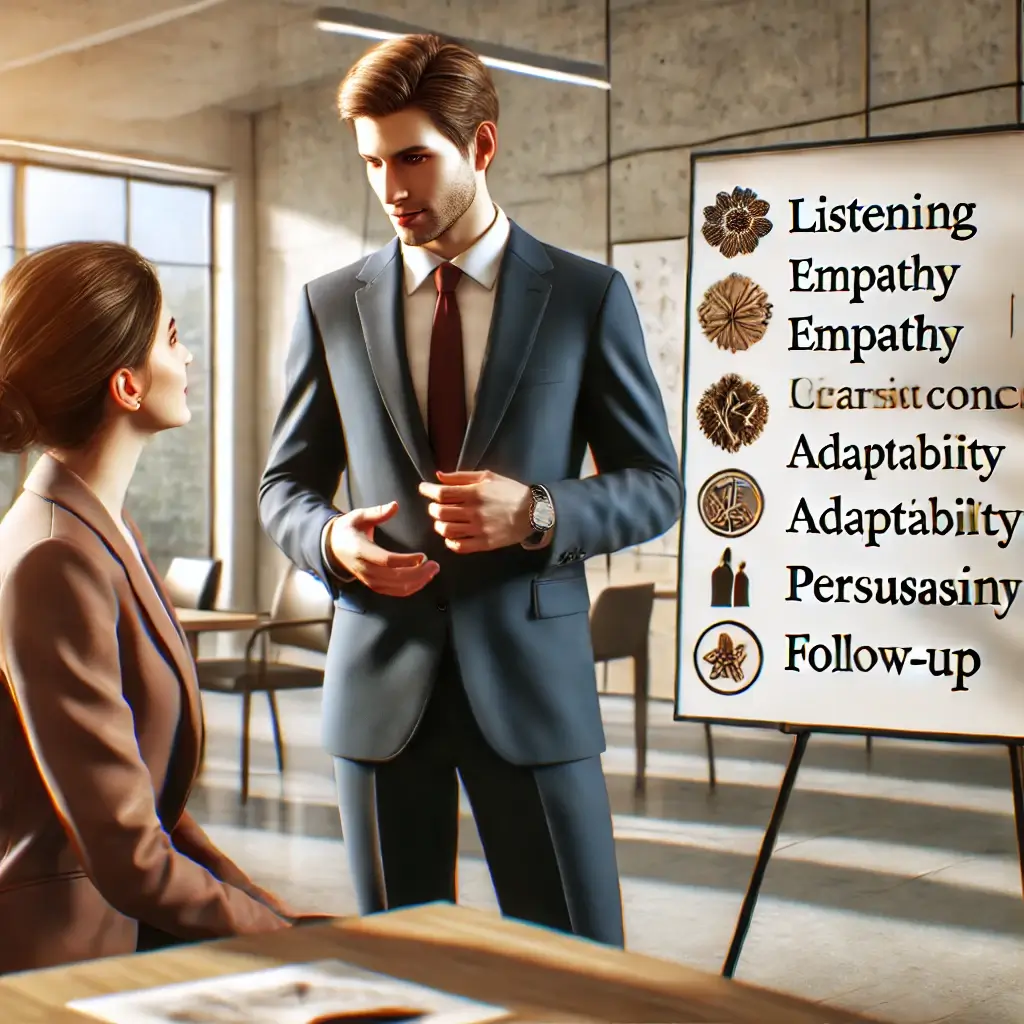Active Listening
One of the fundamental skills for any successful salesperson is active listening. Active listening goes beyond merely hearing what your customer is saying; it involves fully comprehending and engaging with their words, tone, and body language. When you actively listen to your customers, you demonstrate that you value their input and are genuinely interested in their needs.
To practice active listening effectively, focus on what the customer is saying without interrupting. Show that you are engaged through verbal cues like nodding and acknowledging their points. This not only helps you better understand their pain points and requirements but also builds trust and rapport. When customers feel heard and understood, they are more likely to have confidence in your recommendations and trust you as a reliable partner.
Effective Questioning
Asking the right questions is key to uncovering the specific needs and desires of your customers. Effective questioning allows you to gather essential information and tailor your sales pitch accordingly. It's the foundation for providing personalized solutions that resonate with your potential clients.
Open-ended questions are particularly powerful in sales. Questions such as "What challenges are you currently facing?" or "What goals are you looking to achieve?" encourage customers to provide valuable insights. These insights enable you to present solutions that align precisely with their needs. Effective questioning not only demonstrates your commitment to understanding their situation but also positions you as a problem solver, making customers more receptive to your recommendations.
Empathy
Empathy is the ability to understand and share the feelings of another person. In the context of sales, it's about putting yourself in your customer's shoes, understanding their perspective, and showing that you genuinely care about their well-being. Empathy plays a vital role in sales communication because it allows you to connect with your customers on a deeper emotional level.
When customers feel that you genuinely empathize with their situation, they are more likely to trust your recommendations and feel confident in their purchasing decisions. Empathy helps you build long-lasting relationships with your clients, as they perceive you as someone who not only sells but also genuinely cares about their success and satisfaction. Demonstrating empathy can be as simple as saying, "I understand how frustrating that can be," or "I'm here to support you through this process."
Clarity and Conciseness
In the fast-paced world of sales, brevity is crucial. Communicate your message clearly and concisely to avoid overwhelming your customers with unnecessary information. A concise message not only saves time but also ensures that your core points are well-understood.
To maintain clarity and conciseness in your communication, focus on the most important benefits and features of your product or service that directly address the customer's needs. Avoid jargon or technical language that might confuse your audience. A clear and concise message is more likely to resonate and leave a lasting impact, making it easier for customers to make informed decisions.
Adaptability
Sales communication is not a one-size-fits-all approach. Each customer is unique, and their preferences and communication styles may vary. To succeed in sales, you must be adaptable and flexible in your approach. Pay attention to cues from your customers and adjust your communication style to match theirs.
Some customers may prefer a formal approach, while others may respond better to a friendly, casual tone. Being adaptable ensures that you can effectively connect with a diverse range of clients. It also shows that you are attuned to their needs and willing to accommodate their communication preferences, which can lead to a more positive and productive interaction.
Confidence
Confidence is a trait that can significantly influence your success in sales. When you exude confidence, customers are more likely to trust your recommendations and believe in the value of your product or service. Confidence also enables you to handle objections and challenges with ease, as you project an air of competence and authority.
To boost your confidence, continuously educate yourself about your product or service. Stay up-to-date with industry trends and developments so you can speak confidently about how your offering addresses the specific needs of your customers. Practice your sales pitches to ensure that you are well-prepared for any situation. Confidence is not only about what you say but also how you say it, so work on your body language, tone of voice, and overall presentation.
Closing Skills
Closing the deal is the ultimate goal in sales, and having strong closing skills is essential. Your ability to ask for the sale, address any remaining objections, and guide the customer to a decision can make a significant difference in your success rate.
Various closing techniques can be employed depending on the situation. The assumptive close assumes that the customer is ready to make a decision, and you simply guide them through the process. The trial close involves offering a trial or a small commitment to test the waters before making a larger commitment. The alternative close presents the customer with a choice between two favorable options, encouraging them to make a decision.
Practice these closing techniques to become more effective in sealing the deal. Remember that closing is not about pressuring the customer but about helping them make a decision that benefits them.
To further enhance your sales communication skills, consider investing in communication training for employees. A strong sales team can significantly benefit from training programs designed to improve communication skills. Training Course Materials, a leading provider of training resources, offers comprehensive communication training programs that can benefit both individual salespeople and entire sales teams.
By equipping yourself and your team with the right communication skills, you'll be better prepared to excel in the competitive world of sales. Effective communication can lead to increased sales, improved customer satisfaction, and stronger client relationships.
Mastering the art of sales communication is crucial for success in the sales industry. Active listening, effective questioning, empathy, clarity, adaptability, confidence, and strong closing skills are the seven essential skills that can set you apart from the competition. Remember, it's not just about selling a product or service; it's about building relationships and understanding your customers' needs.
For more information on communication training for employees and to take your sales communication skills to the next level, visit Training Course Materials today.














































































